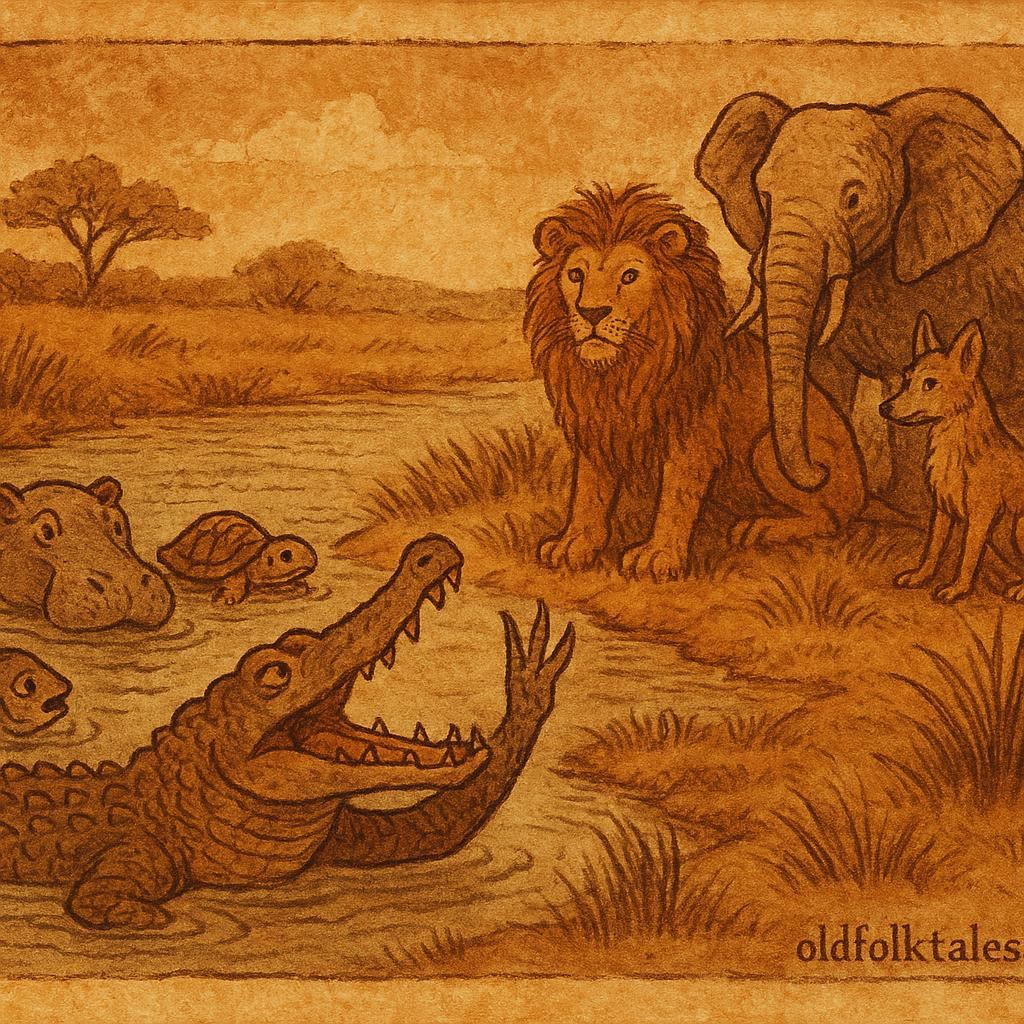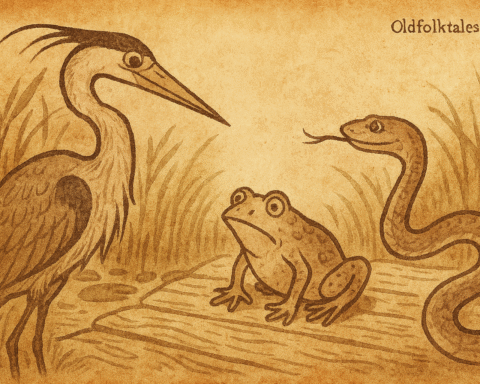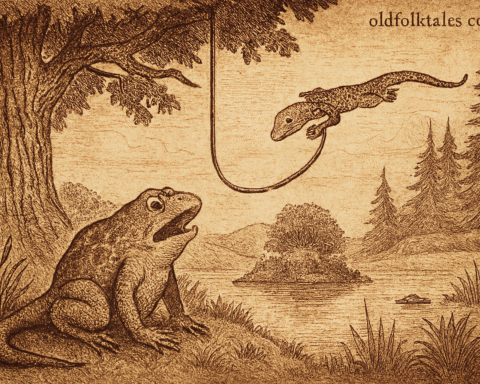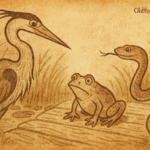Long ago, when animals still spoke and lived much like humans, Crocodile held a position of authority over all water creatures. He was the undisputed foreman of the rivers, ponds, and marshes, charged with the care and oversight of every aquatic animal. One year, however, the rains failed, and the river where they had lived shrank into a trickle. Scarcity threatened every creature, and Crocodile knew that drastic action was needed to survive.
He dispatched Otter on a reconnaissance mission. After two days, Otter returned with news of another river not far away, a haven with deep sea-cow holes that would remain full even through years of drought.
Satisfied, Crocodile summoned Tortoise and Alligator. “Tonight,” he instructed, “you must carry a report to Lion. The veldt is parched, and you may go without water for days. We must secure Lion’s help to cross safely, especially past the Boer’s farm that lies in between. Any land animal is dangerous to a fish outside water, and we cannot survive without his cooperation.”
The two messengers endured the scorching sun and dry veldt but eventually reached Lion. After reading the report, Lion paused, wary of the crocodile’s intentions. “I will consult Jackal first,” he murmured. To Crocodile’s envoys, he replied that he would come the next evening with his advisers to the big vaarland willow, at the far end of the watering hole where Crocodile had his headquarters.
Returning to Crocodile, Tortoise and Alligator were met with satisfaction. Crocodile instructed Otter and a few trusted companions to prepare abundant fish and other foods for the visiting animals that evening.
As night fell, Lion appeared at the willow with Wolf, Jackal, Baboon, and other important animals. Crocodile greeted them warmly, while secretly planning a treacherous move. He and his water subjects hoped to benefit from the drought, and he intended to secure their survival, even if it meant deception.
Jackal, skeptical, distrusted the agreement. He could not see its benefit to the veldt animals. Wolf, satiated from the feast, was in a peaceable mood and encouraged Lion to accept Crocodile’s proposal. After listening to advisers and Crocodile’s entreaties, Lion agreed. A document was drawn up, and the plan to move the water animals to the other river was set for the next night.
Messengers swam in all directions, summoning every aquatic creature. Frogs croaked and crickets chirped in the long water grass as the animals gathered beneath the vaarland willow. Meanwhile, Lion sent riders to summon an escort from the veldt animals, which arrived in time to join the trek.
The journey was meticulously organized. Jackal would lead as scout, spying for Lion. “I do not trust this affair,” he warned, “and I will abandon the plan before the sea-cow pool. I will guide you safely until then, but I will not await your arrival there.” Elephant, with his sensitive ears and keen smell, acted as advance guard. Lion led one division of the land animals, while Crocodile and his followers formed the main column, protected on both flanks. Wolf brought up the rear.
But while the trek proceeded, Crocodile secretly prepared his treason. He whispered to Yellow Snake: “Wait behind unnoticed. When I signal that we’ve arrived safely at the sea-cow pool, harass the Boer’s dogs and let the others fend for themselves.”
The caravan moved slowly; many water animals were unused to travel on land. Yet they passed the Boer’s farm safely, and by dawn, all reached the sea-cow pool. There, most of the water creatures slipped into the deep water, vanishing from view. Crocodile, pretending relief, praised Lion for his aid with dramatic cries that echoed through the veldt.
Just as Lion prepared to depart, gunfire erupted. Elephant and other land animals were struck. Jackal leapt from hiding and shouted, “I told you so! Why were you fooled by Crocodile’s tears?”
Crocodile had disappeared into the pool, leaving only bubbles as evidence of his retreat. The remaining animals faced the Boer’s attack, but most survived. Crocodile eventually met his fate when he encountered a driver with a load of dynamite, receiving a deserved reward for his treachery. Even now, the tale says, Elephant seizes opportunities to toss his foes high into the trees, a reminder of the perils of deception.
Moral of the Story
This tale warns of the dangers of treachery and deceit. Even the most trusted allies may act for selfish gain, and vigilance, wisdom, and caution are essential to survival. Loyalty and discernment are as valuable as strength.
Knowledge Check
1. Who is the main character of the folktale?
Crocodile, foreman of the water creatures, is the central figure.
2. What problem initiates the story?
A severe drought threatens the survival of Crocodile and the other water animals.
3. How does Crocodile initially try to solve the problem?
He plans a peaceful agreement with Lion to safely move the water animals to another river.
4. Who warns Lion of potential treachery?
Jackal, acting as scout, distrusts Crocodile and warns Lion.
5. What happens when the animals reach the sea-cow pool?
Crocodile signals an ambush; gunfire strikes some animals, but most survive.
6. What lesson does the folktale convey?
Deception can come from trusted allies; vigilance and wisdom are key to survival.
Source: South African folktale






